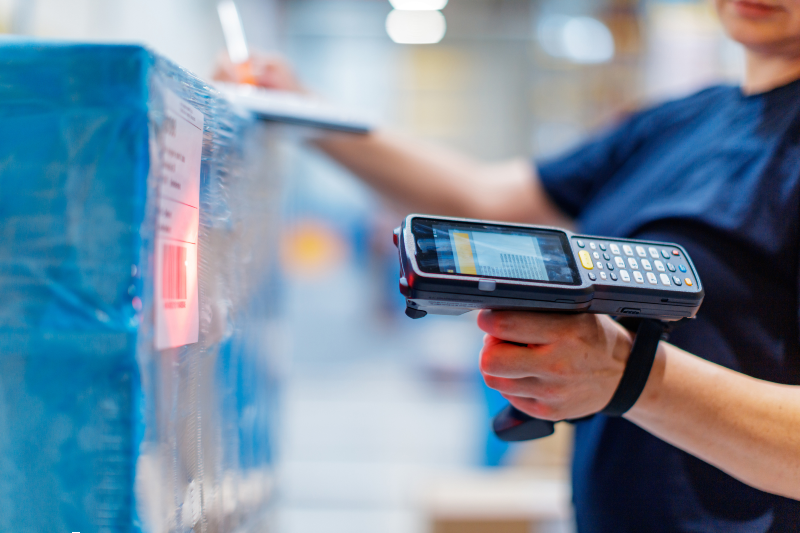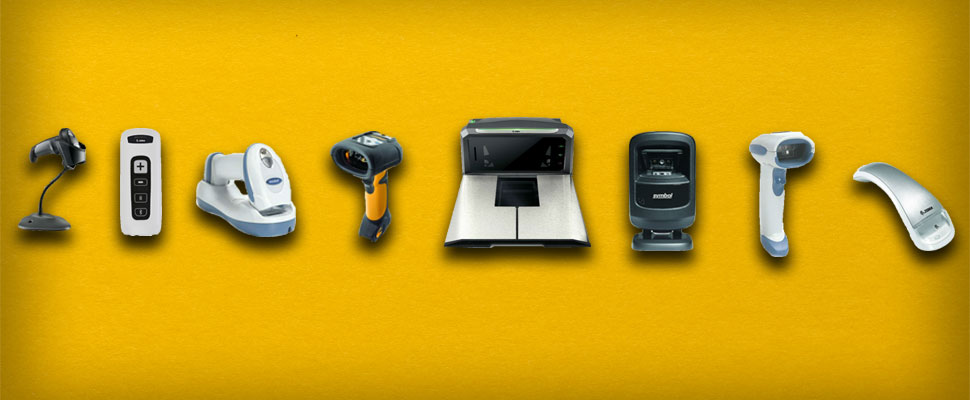Barcodes Scanners with Innovative Technology for Accuracy
Barcodes Scanners with Innovative Technology for Accuracy
Blog Article
Choosing the Right Barcode Scanner for Your Business Requirements
Picking the proper barcode scanner for your organization calls for a nuanced understanding of your certain functional requirements and environmental conditions. Factors such as scanner kind, speed, and compatibility with existing systems play a critical function in identifying the best choice.
Recognizing Barcode Scanner Kind
When it involves choosing a barcode scanner, comprehending the various kinds readily available is vital for conference particular business demands. Barcode scanners can be classified into several kinds, each created for different applications and environments.
Portable scanners are the most common, supplying mobility and ease of usage, making them appropriate for retail and inventory monitoring. They normally link via USB or Bluetooth, giving adaptability in operation. Fixed-mount scanners, on the other hand, are created for high-volume scanning applications, typically found in production line or checkout counters. These scanners are placed in a stationary placement, enabling fast scanning of multiple products in sequence.
Another type is the mobile computer, which combines scanning capacities with computing power. These devices are suitable for field operations or storehouse administration, making it possible for data collection and real-time inventory tracking. Additionally, there are industrial scanners that are constructed to withstand harsh atmospheres, such as severe temperature levels or exposure to dirt and dampness.

Trick Features to Consider
What necessary attributes should businesses focus on when selecting a barcode scanner? Scanning speed is important, as faster scanners boost operational performance, specifically in high-volume atmospheres. The scanner's capability to review various barcode formats is additionally vital; guarantee it supports prominent kinds like QR codes, UPC, and Code 128 to fit varied supply items.
Sturdiness is another essential attribute, specifically for services in sturdy setups. Look for versions that are built to stand up to decreases, dirt, and wetness. Furthermore, think about the connection options readily available; whether you prefer USB, Bluetooth, or Wi-Fi, the ideal connectivity can improve assimilation with existing systems.

Analyzing Your Business Atmosphere
To effectively choose a barcode scanner, services have to take supply of their specific functional environment. This analysis consists of examining the physical format of the work area, the nature of the items being checked, and the common problems under which scanning happens. A retail setting may call for handheld scanners that can rapidly process deals at the checkout, while a storehouse setup could profit from ruggedized scanners designed to endure harsher conditions.
Furthermore, take into consideration the volume of scanning required. High-throughput environments may require sophisticated scanning modern technologies, such as fixed-position scanners or smart phones that can run successfully in fast-paced situations. The integration capabilities with existing inventory management systems also play an important function; make sure the selected scanner can effortlessly get in touch with software platforms in operation.
A scanner that satisfies current needs could not be sufficient as organization expands. By extensively evaluating these factors, organizations can select a barcode scanner that not only fulfills immediate requirements but also sustains lasting functional effectiveness and flexibility. barcodes scanners.
Budgeting for Your Scanner
Having actually analyzed the functional environment and recognized the particular needs for a barcode scanner, the following step includes careful budgeting to make sure a smart economic investment. Establishing a spending plan begins with identifying the total costs connected with the scanner, including first purchase cost, functional costs, and possible maintenance charges.
When selecting a barcode scanner, take into consideration the series of offered options, from portable tools to fixed-position scanners, as costs can differ substantially. It is necessary to stabilize price with functionality; choosing an extra inexpensive design might lead to boosted functional inefficiencies if it does not satisfy your service demands.
In addition to the hardware, consider prices associated with software application, training, and prospective upgrades. While it could be news tempting to minimize in advance expenditure, buying a top quality scanner that straightens with your operational requirements can produce lasting financial savings through improved efficiency and minimized downtime.
Lastly, consider the total cost of ownership, which includes the scanner's life-span and possible resale worth. By meticulously preparing your budget plan, you can make sure that your financial investment in a barcode scanner will boost your functional productivity and financial performance.
Integration With Existing Systems
Integrating a pop over to this site barcode scanner with your existing systems is vital for maximizing its effectiveness and guaranteeing seamless procedures. barcodes scanners. A well-integrated scanner boosts process effectiveness, decreases errors, and accelerates information handling. When selecting a barcode scanner, think about compatibility with your existing software program and equipment infrastructure, including your stock monitoring systems, point-of-sale (POS) systems, and enterprise source preparation (ERP) options
Examine whether the scanner utilizes conventional procedures such as USB, Bluetooth, or Wi-Fi, which can assist in easy combination. Furthermore, evaluate whether the scanner's software program uses APIs or SDKs that enable customization and assimilation with proprietary systems. This is particularly vital for services with unique functional requirements.
Moreover, think about the scalability of the scanning remedy. As your company expands, your systems should be able to suit additional scanners and manage raised why not try here data volumes without substantial reconfiguration. Ultimately, purchasing a barcode scanner that effortlessly incorporates with your existing systems will yield long-lasting advantages, boosting accuracy, efficiency, and general performance within your procedures. Take the time to completely examine your assimilation requires prior to buying decision.

Verdict
Finally, selecting an appropriate barcode scanner necessitates an extensive assessment of various factors, including scanner kinds, crucial attributes, and the certain service atmosphere. Proper budgeting for both procurement and functional expenses is vital, together with ensuring compatibility with existing systems. By meticulously taking into consideration these components, services can enhance performance and efficiency, ultimately bring about enhanced operational end results. The ideal barcode scanner functions as a vital tool in simplifying processes and facilitating reliable inventory monitoring.
Report this page